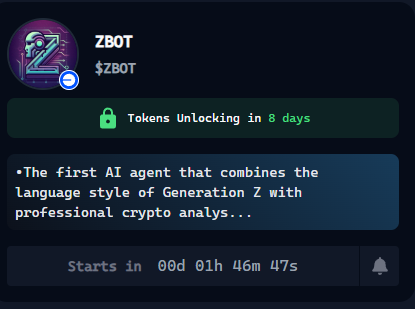Navigating the ever-evolving landscape of artificial intelligence (AI) can feel like stepping into a whirlwind of innovation, promise, and complexity. As AI technologies weave themselves deeper into the fabric of our daily lives and global industries, understanding their trajectory, impact, and challenges becomes essential—not just for experts, but for anyone curious about our shared future. In this detailed report, we will unpack the state of AI as of mid-2025, exploring its technological advances, societal implications, ethical considerations, and what the future might hold.
—
The Dawn of a New AI Era: From Narrow to Broad Intelligence
Artificial intelligence has long been categorized into narrow AI—systems designed to perform specific tasks such as language translation or image recognition—and the elusive goal of artificial general intelligence (AGI), which aims to mimic human cognitive abilities across a broad range of tasks. By 2025, we stand at an inflection point where the lines between these categories blur.
Recent advances have produced AI models capable of astonishing versatility. These systems not only excel in language processing but also demonstrate competencies in reasoning, creativity, and even emotional understanding. This leap owes much to the integration of:
– Multimodal learning: AI systems now process and correlate information across text, images, audio, and even sensor data, yielding richer contextual awareness.
– Self-supervised learning: By leveraging vast amounts of unlabeled data, AI models are reducing dependence on costly human annotations and adapting more flexibly to tasks.
– Neuro-symbolic approaches: Combining neural networks with symbolic reasoning enables AI to handle abstract concepts and logic, pushing beyond pattern recognition.
This multifaceted intelligence foundation expands AI’s applicability from traditional domains like healthcare diagnostics and autonomous vehicles to creative industries, education, and personalized digital assistance.
—
AI in Industry: Innovation Fueled by Data and Automation
Industries across the spectrum harness AI to enhance productivity, decision-making, and user experiences. Consider a few transformative sectors:
Healthcare: Precision Medicine and Beyond
AI-driven diagnostics have reached unprecedented accuracy, enabling earlier detection of diseases such as cancer and neurological disorders through pattern recognition in medical imaging. Personalized treatment plans are increasingly crafted by AI systems analyzing genetic, lifestyle, and environmental data.
Moreover, AI-assisted drug discovery accelerates the identification of viable compounds, drastically reducing costs and development time. Virtual health assistants aid patients in managing chronic conditions, offering real-time monitoring and advising based on continuous data streams.
Finance: Risk Management and Smart Investments
In financial services, AI algorithms sift through massive datasets to identify market trends, forecast risks, and automate trading strategies. Fraud detection systems now learn dynamically from emerging patterns, providing robust security against sophisticated cyber threats.
The rise of AI-powered robo-advisors democratizes investment management, offering tailored portfolios and financial advice to individuals irrespective of their wealth or expertise.
Creative Industries: Co-Creation and Content Generation
AI tools are reshaping creativity. From generating compelling storylines and music compositions to designing graphics and immersive virtual environments, AI acts as a collaborator rather than mere tool. This partnership accelerates creative cycles and opens new avenues for artistic expression.
With AI-driven personalization, content platforms deliver customized experiences, enhancing engagement and satisfaction for diverse audiences.
—
Societal Impacts and Ethical Dimensions: Navigating Hope and Challenges
The proliferation of AI brings profound societal ramifications. As we integrate AI deeper into everyday life, we face critical questions around fairness, transparency, privacy, and control.
Bias and Fairness
AI models trained on historical data risk perpetuating societal biases, exacerbating inequalities. Efforts to detect, mitigate, and correct these biases are gaining momentum. Transparent AI frameworks, community engagement, and inclusive data curation become pillars for ethical AI deployment.
Privacy and Security
The convergence of AI with big data analytics raises privacy concerns. How personal data is collected, shared, and used mandates stronger data governance. At the same time, adversarial attacks on AI systems reveal vulnerabilities requiring robust defenses.
Employment and Economic Shifts
Automation reshapes job markets, displacing routine occupations while creating demand for new skills in AI design, maintenance, and oversight. Lifelong learning initiatives and workforce reskilling programs are essential to navigate this transition equitably.
—
The Road Ahead: Opportunities and Responsibilities
Looking forward, AI holds the promise of addressing grand challenges, from climate change modeling to bridging educational gaps globally. But harnessing this promise demands deliberate stewardship:
– Interdisciplinary collaboration: Integrating insights from computer science, social sciences, law, and philosophy enriches AI development, ensuring it aligns with human values.
– Regulatory frameworks: Governments and international bodies work towards standards that safeguard rights without stifling innovation.
– Public engagement: Democratizing AI knowledge fosters informed discourse and collective decision-making about technology’s role.
The coming years will witness further integration of AI with other emerging technologies—quantum computing, advanced robotics, and bioinformatics—unlocking possibilities we can barely envision today.
—
Conclusion: Embracing AI with Insight and Intent
Artificial intelligence stands as one of humanity’s most transformative inventions—a tool and companion reshaping how we think, work, and create. Its rapid evolution offers remarkable benefits but also demands vigilance, ethical reflection, and proactive governance.
The narrative of AI is not fixed by technology alone but steered by the choices society makes. Engaging openly with AI’s potential and pitfalls empowers us all to chart a course toward an inclusive, innovative future.
—
Sources and Further Reading
– OpenAI Research Highlights
– Stanford Human-Centered AI Institute
– AI and Society – MIT Technology Review
– World Economic Forum on AI Governance
– Nature – Advances in AI





